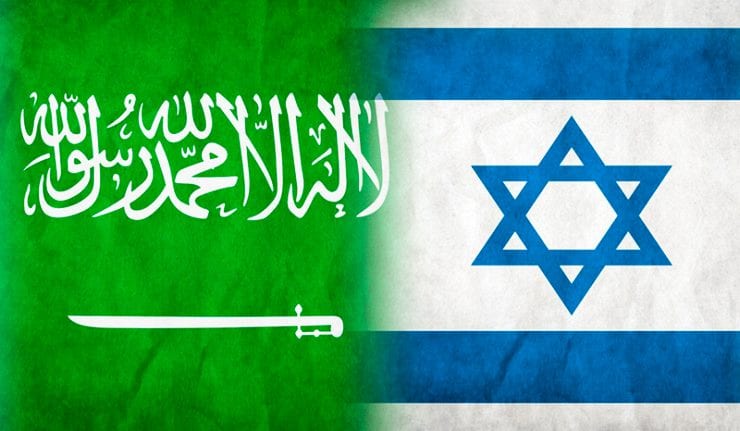Undercover ties are apparently fine, but open normalization – an Israeli flag next to an Israeli player in a match who, heaven forfend, might even win – no way
By Israel Shrentzel, Haaretz
The Saudis are hardly chess masters, to put it mildly, but they handled the “game of visas” against Israel cleverly. The final refusal to give Israeli players visas so they could take part in a speed chess championship that Saudi Arabia is hosting this week was declared just 48 hours before the matches began. Most of the players had already arrived in the kingdom, or were en route.
The Saudi position is disappointing (although the Israeli chess association’s management is at least happy about the publicity the story evoked) – but not surprising.
With this move the Saudis have reiterated the nature of relations with Israel, for the present: Significant undercover military and political cooperation (apparently very significant) is certainly fine; the Israeli army’s chief of staff even gave an interview to a Saudi website – also okay; and the reaction to Trump’s declaration recognizing Jerusalem was decidedly lame. But open normalization, meaning an Israeli flag next to the name of an Israeli player in a match who, heaven forfend, might even win – no way.
More interesting is the issue of the degree to which Israel acted behind the scenes to persuade the Saudis to decide otherwise. Or, maybe it decided to “sacrifice” the pawns – the seven Israelis who had signed up for the competition – in order to avoid a bitter clash with its new covert ally. We do have to assume that if Israel reaches the chess competition in Qatar in 2022, we won’t just shrug when our players are banned.
The FIDE World Chess Federation slogan is “We are one people,” but the hypocrisy rages on. The organization does not make host countries promise that everybody can compete. It is relying on the competition’s attraction this time, even without Israeli participation. Even FIDE’s vice president, Israel Gelfer (who serves in a personal, not formal capacity), is not, insofar as is known, considering a protest.
It is difficult to watch the demonstrations of identification with the Saudi decision, certainly at this last moment, by veteran players, led by incumbent champ Magnus Carlsen. Their field of vision is usually limited to the board. This event is crucial to them – financially, too. Introducing diplomatic considerations would demand making difficult political decisions.
The last chess Olympics, in Baku, Azerbaijan, was boycotted by Armenian players because of the relations between the two countries. Before that, Israel was banned from the women’s championship in Tehran. The vast majority of women players who did participate meekly accepted the diktat to don a hijab during the games; only the American champion Nazí Paikidze balked and boycotted.
The Saudis, by the way, are going to forego the hijab at their women’s event, which takes place alongside the main one.
The powerful Israeli grandmaster master Emil Sutovsky, president of the nonprofit Association of Chess Professionals, has suggested holding a parallel event soon, but even if that happens, its significance would likely be confined to the symbolic.
The best advice after a loss in chess is to prepare for the next fight. We have the date: the end of December 2018, same competition, same place, because FIDE is letting the Saudis host the games for three straight years. One could raise a lot of ideas for how to pursue the struggle: collaborate with the United States, as we did regarding membership in UNESCO (in principle). The U.S. won the last chess Olympics and three of its players are among the top 10 in the world. They will be at the Saudi tourney. The situation should also be thoroughly explained to the leaders of professional world chess.
But if we are serious about our right to compete anywhere – and this applies to more than just chess – we have to behave accordingly, which means with guidance from the state, given a long time in advance.









